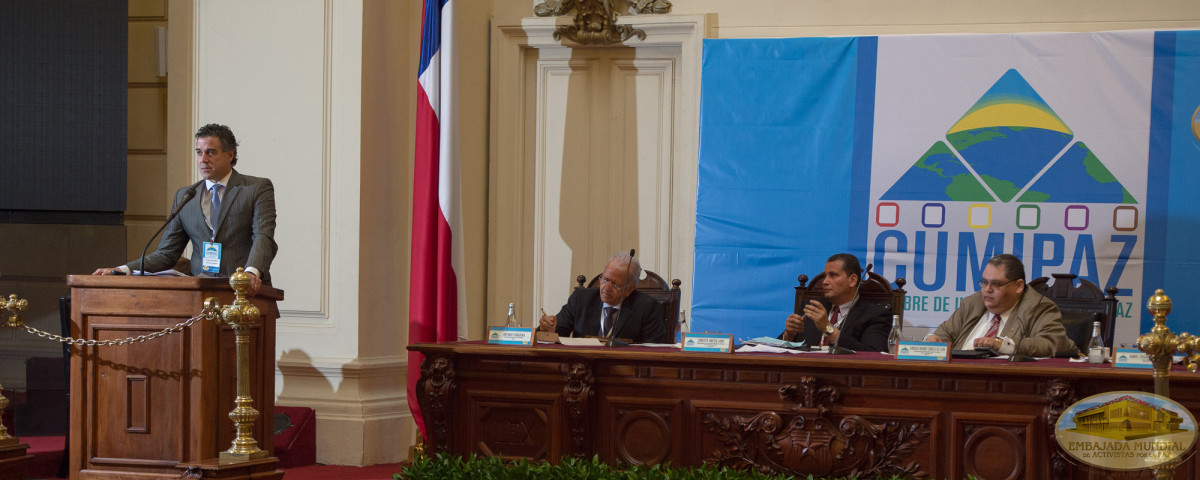Second Table of the Judicial Session of CUMIPAZ 2015
THE UN AND ITS ROLE IN MAINTAINING PEACE AND GLOBAL SECURITY
The Judicial Session of CUMIPAZ 2015 continued its deliberations on a topic which is becoming increasingly relevant in the foreign policy of many countries, and it refers to the role that the United Nations Organization fulfils in maintaining the peace and security of the nations and among the nations, with the participation of four lecturers from Mexico, Brazil, Costa Rica and Argentina. The moderator of the second table was Dr. Gladys Edilma Teran Sierra, Judge of the National Court of Justice from Ecuador.
Dr. Gonzalo Higinio Carrillo de Leon, from Mexico, was the first lecturer analyzing the topic” “The UN Security Council. Proposals for its democratization”, where he highlighted that Mexico recently passed a constitutional reform in Human Rights, impacting the nation and bringing them to analyze the system of universal protection of human dignity:
“Can we continue allowing a political council, like that of the UN Security Council, to prevent judges from doing their work, for which they were elected and called? We cannot allow this; because it would be like overlooking what the victims of these terrible crimes, which should be judged by the International Criminal Court, yearn for: Justice.”
The topic: “The right to veto in the UN Security Council and its impact on peace and global security” was covered by the Prosecutor of the Federal Union from Brazil: Antonio Cerqueira, who stated that the main problem that this organization (UN) faces is the operation of the Security Council, and the right to veto of its permanent members, which can block any decision made in this matter, for which he made an in depth analysis of various emblematic cases involving countries that are part of the Security Council.
The experience of Costa Rica was presented by the Judge of the Constitutional Court of the Supreme Court of Justice, Dr. Ernesto Jinesta Lobo, with the Lecture: “The fundamental right to peace in the judiciary of the Constitutional Court of Costa Rica”. He highlighted the social evolution of this country in the Latin American environment; and particularly in the Central American region:
“…We are always in favor of pacifism, civilism, dialogue, agreement, against confrontation, aggression and violence.”
The Federal Judge of Argentina, Dr. Daniel Rafecas, refered to “Politicide or genocide against political groups, proposal for its criminalization as an international crime: the Argentinian experience” in his lecture. Dr. Rafecas justified the importance of criminalizing politicide and including it as a form of genocide based on political, social and human rights violation in Argentina and other places of the world:
“…Three parts of massive crimes that have been committed by the world during the second half of the XX century and – we can add – what we have been living of the XXI century, are crimes of political motives, against political opponents.” He ended his lecture by citing a phrase from Dr. William Soto: “Justice for peace is based on truth and the respect for human dignity.”
